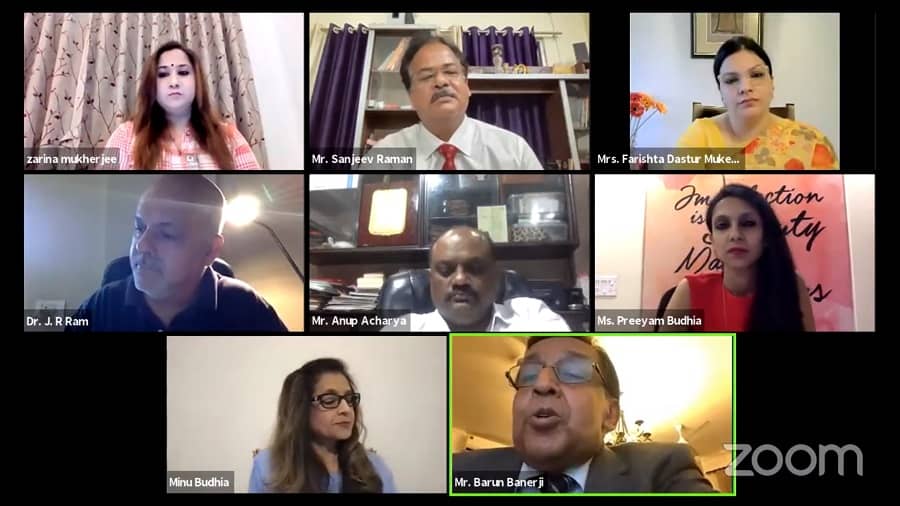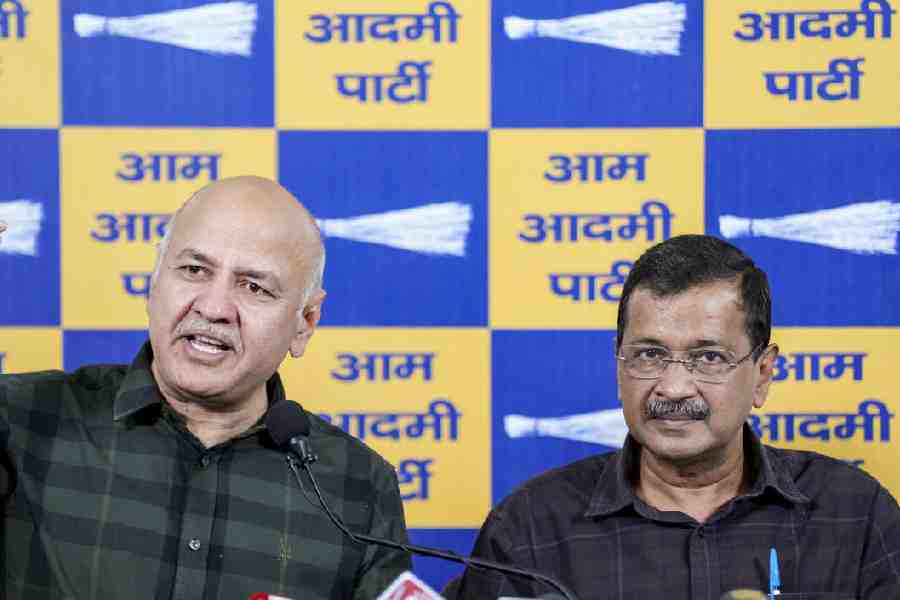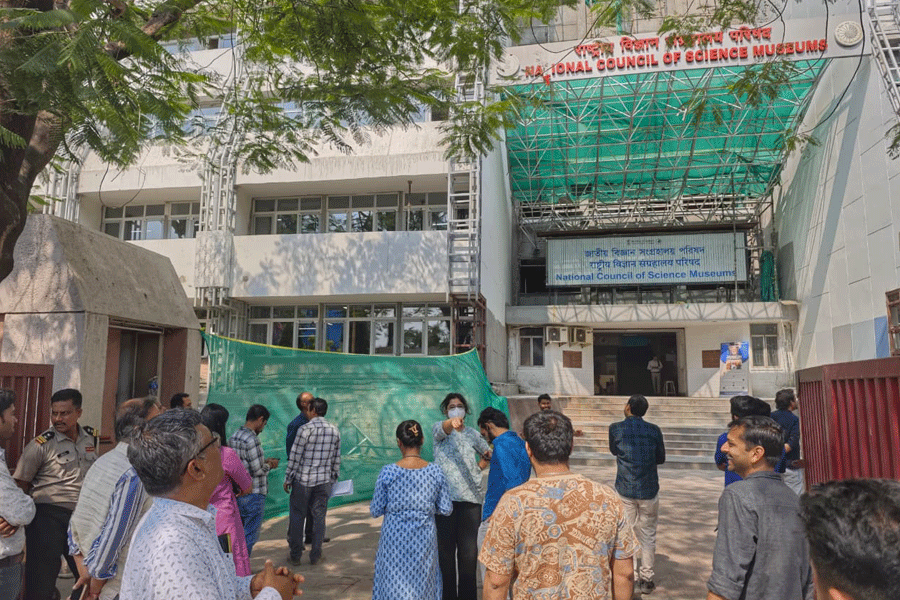In the past year, the workforce has had to endure the brunt of the pandemic, having to juggle duties at home, whilst working remotely. Corporates have taken note of the impact Covid-19 has had on professionals, triggering conversations around mental health in the workplace.
In keeping with this theme, the Indo-American Chamber of Commerce (IACC), East India Council organised a webinar on July 14 on ‘The Impact of COVID-19 on Mental Health: The Corporate Scenario’. The welcome address was given by Barun Banerji, regional president of IACC (EIC), and the panel comprised Dr J. R. Ram, consultant psychiatrist and joint director of Mental Health Foundation, Kolkata; Minu Budhia, psychotherapist, counsellor and founder-director of Caring Minds; Farishta Dastur Mukerji, psychotherapist and counsellor; and Preeyam Budhia, head of new initiatives at Caring Minds. Retired naval commander Sanjeev Raman moderated the session.
The webinar not only focussed on problems employees were facing during the pandemic, but also shed light on their causes, and possible solutions. Minu Budhia emphasised the need to remove the stigma around seeking help by sharing her struggles with depression and suicidal thoughts, after her daughter Prachi was diagnosed as a special-needs child. “When you suffer from a mental illness, you experience many hormonal changes. Psychologists and psychiatrists can help you during this time. Don’t let your loved ones suffer, and get them the help they need,” she said.
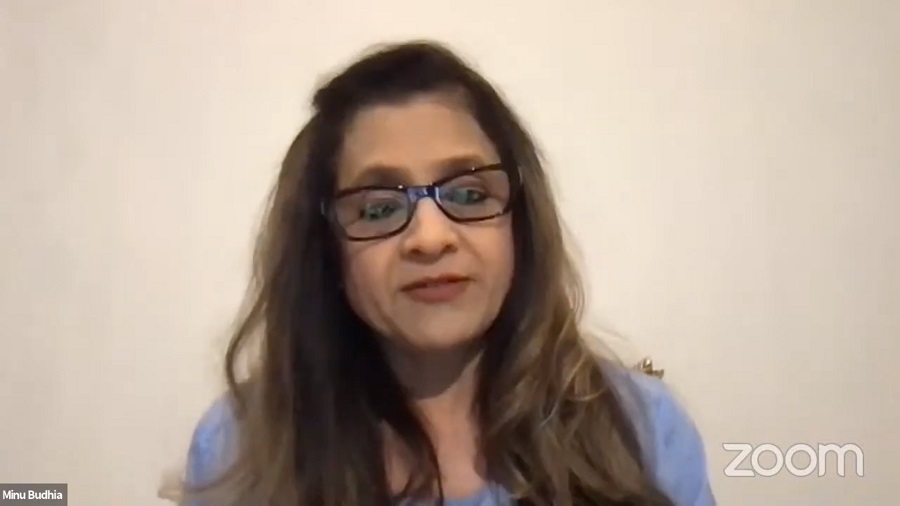
Minu Budhia shared her personal struggles with depression whilst emphasising on the importance of universally providing professional help.
Her daughter, Preeyam, shared her professional struggle of being let go from her first job due to an economic crisis, and trying to find a new job in the recession. She added that maintaining a work-life balance was critical to sustainably work from home, and suggested the Eisenhower Principle as a good way to divide tasks based on importance and urgency, and accordingly devote time to them.
Besides sharing personal stories, the panellists also suggested some measures corporates can take to help their employees. “Although most organisations have an HR personnel or counsellor to address employee problems, it is impossible for one person to cater to hundreds of people. Hence, organisations must set up more support systems and channels that can engage with HR, empower them, and create mental health awareness as collaboration is the way forward,” said Farishta. She also highlighted the importance of undoing one’s conditioning in keeping with the changing world, as the nature of work, along with expectations held by both employers and employees have evolved during the pandemic.
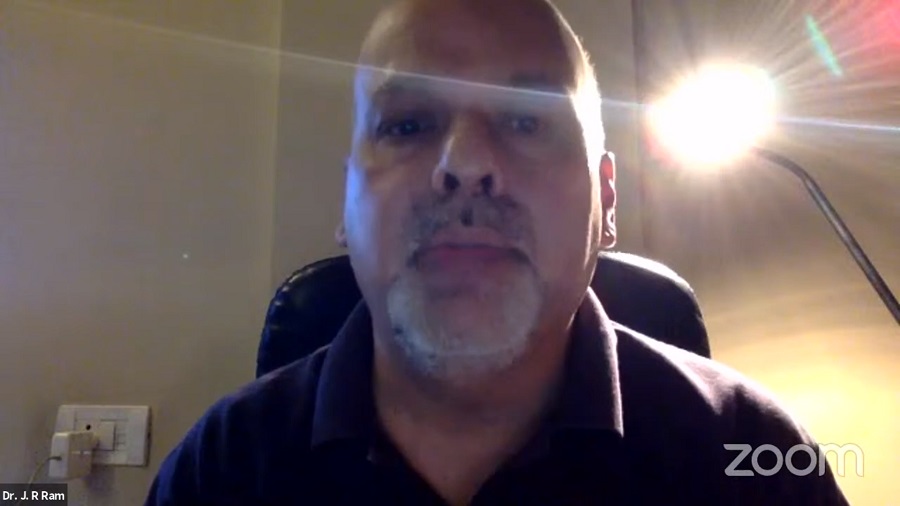
Dr. J. R. Ram emphasised on the need to be there for someone struggling, and acknowledging their feelings.
“These bewildering 18 months have been an education for all of us. It is human beings who constitute an organisation, and we all have multiple identities, be it as a parent, child, employer or employee. I would request everyone to think of themselves in these multidimensional roles, and reflect upon what they mean to them,” said Dr Ram, while elucidating how in the pandemic, all sections of society had come forward to help each other. He added that all that was required to help someone was an acknowledgement of how they were feeling and offering to be there, rather than holding a degree in psychology. “If the head or senior members of an organisation talk about their struggles, it encourages those working for them to come out and seek help. A culture of sharing needs to be developed,” he said.
The speakers shed light on how this mental health crisis won’t just be limited to the current workforce, but impact future generations who join it. Many children are being neurologically impacted and experiencing learning deficits as they are not allowed to engage with society physically during their first few years, which are extremely crucial to their development.
The evening concluded with a vote of thanks from Anup Acharya, regional vice president of IACC (EIC).

